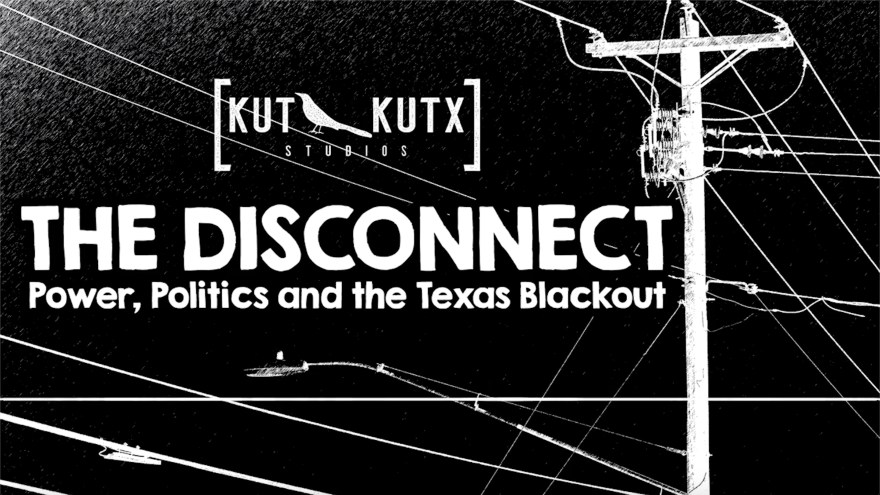Updated August 26, 2022 at 6:40 AM ET
You can generally trust that when you flip a light switch in the U.S., the power will come on.
But earlier this year, a forecast by the North American Electric Reliability Corporation (NERC) predicted much of the country could see blackouts during peak summer demand, when everyone is blasting their air-conditioners.
While major outages haven't happened so far, GOP elected officials and fossil fuel supporters still used the report to bash the shift to renewable power.
" 'Biden blackouts' will make it impossible to run even fans and air conditioners on the hottest days of the summer," said Iowa Republican Sen. Joni Ernst during a speech on Capitol Hill in July, claiming these outages would be the result of "the Democrats' push towards renewables."
Iowa is major producer of wind power, said Ernst, but she accused Democrats of causing energy shortages by restricting oil and gas leases.
Republican Sen. John Barrasso of Wyoming, the top coal-producing state in the country, made a similar argument in a USA Today op-ed. So did Washington Post columnist Marc Thiessen, in a piece that also cast doubt on climate change. "Senator Barrasso's opinion column expresses his point of view based on data," said Kristen DelGuzzi, USA TODAY's opinion editor. The Washington Post declined to say how it fact-checked Thiessen's column.
This message is part of an ongoing misinformation campaign, says Dave Anderson of the Energy and Policy Institute, a watchdog group.
The aim is, "To keep alive the idea that we need large amounts of fossil fuels" to back up the grid, he says, despite the scientific consensus that the world must rapidly slow down and stop using them to avoid the worst impacts of climate change.
How disinformation for the fossil fuel industry started spreading
When the power did go out during the big winter storm in Texas last year, killing 246 people, "The disinformation machine for the fossil fuel industry very quickly jumped into action," Anderson says.
He put together a 19-page timeline of how elected officials and advocacy groups began publicly hammering wind power, even before the blackouts started.
The day before the storm, DeAnn Walker, then-chairperson of the Public Utility Commission of Texas, had warned that gas generation plants were having issues and wind turbines were frozen.
But only part of that message was picked up and widely circulated. Photos and tweets about frozen wind turbines flew around social media. Some spreading the message, like the conservative Texas Public Policy Foundation, have received money from coal and gas interests. As the weather worsened, conservative media amplified the message, with segments by Fox News' Tucker Carlson Tonight and Mornings with Maria.
"It's just reaching millions of people in a way that's hard to reach with any sort of fact-check," Anderson says.
This campaign is designed to drown out the truth, says Anderson, "When a situation like this arises that highlights in a enormously public and consequential way how fossil fuels can also fail."
A federal report would later find that natural gas fired plants suffered the majority of outages during the storm, with wind power a distant second.
This pattern repeated again during the summer of 2022, when the grid operator Electric Reliability Council of Texas (ERCOT) warned the power could go out during a heatwave in July.
"They put out a press release which basically was setting up wind to be the fall guy if there were problems," says Andrew Dessler, professor of atmospheric sciences at Texas A&M University.
This time, the power stayed on. ERCOT declined to make anyone available for an interview, but confirmed to Politico that at the same time it warned about wind power, conventional power plants were also down.
The message that renewables were to blame, Dessler says, "It's not honest."
Transitioning to renewable energy is doable but must be done at a managed pace
Jim Robb, CEO of NERC, says there are two main challenges when adding renewables to the grid: Managing times when wind and solar power aren't producing, and converting power from renewable sources to a form that the grid can use.
"This clean energy transition is doable. It needs to be done at a managed pace," he says. Bringing more wind and solar onto the grid, without focusing on how to back it up, could cause outages, Robb says. For now, natural gas is often the power source for times the wind is not blowing and the sun is not shining, according to NERC. In the future, it could be batteries, hydrogen power, or another clean energy source.
But, technology exists now to make a renewable grid work better, says Shelley Welton, professor of law and energy policy at the University of Pennsylvania. Solutions like building transmission lines to connect power sources in different parts of the country are a policy challenge, not a scientific one.
Blaming renewables is a distraction, says Welton, "A way to forestall a transition that's underway, but needs to move faster than it is right now."
Copyright 2022 NPR. To see more, visit https://www.npr.org.














